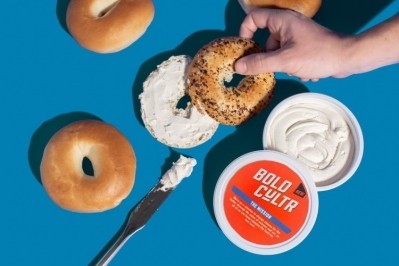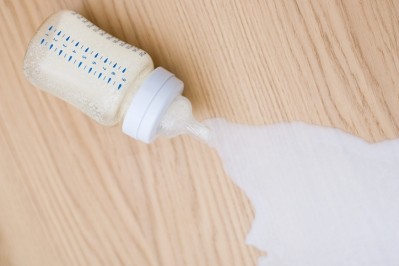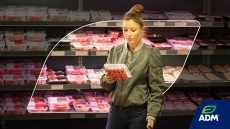Maolac 2.0: Start-up looks to fungi and plant side streams for breast milk protein biosimilarity

Founded in 2018 by CEO Maya Ashkenaz and board members Ariel Orbach and Eli Lerner, Maolac leverages AI technology to identify functional proteins in bovine colostrum – the initial milk secreted by cows during the first day after calving – that are biosimilar to those found in human milk.
In sourcing those functional proteins from bovine colostrum, the company aims to deliver the benefits of human milk, such as reduced inflammation, to the food and beverage industry.
But over this last year, the start-up has realised its technology can be applied to many side streams, and not just bovine colostrum. “Our technology can become a platform,” Maolac co-founder and CEO Maya Ashkenazi explained. “We can identify and create more and more compounds that have biofunctional capabilities. And they don’t have to necessarily come from animal sources.”
Upcycling side streams from animal and plant sources
The process, in essence, is the same. The start-up defines the desired functional claim (for example ‘anti-inflammation’) and identifies the required protein source to support the functional claim. Whereas previously the company was focused solely on bovine colostrum as the protein source, it is now looking beyond the animal realm.
“We have invested a lot in our natural language processing (NLP) search algorithm, which scouts keywords in scientific literature to find correlations in an efficient way,” Ashkenazi told us at the recent OurCrowd Global Investor Summit in Jerusalem.
Now, the algorithm can take proteins from any side stream, whether that be fungi, or algae and other plants, as well as animal-based sources such as bovine colostrum, to provide bio functional proteins (BFPs) to industry.
“If Maolac used to be ‘the colostrum company’, right now we are a biotechnology company that uses its platform to leverage biofunctional proteins in breastmilk and find them in other sources.”
It is important to Maolac that these alternative sources be sustainable, which is why upcycling bovine colostrum was a no brainer. From the more than 250m dairy cows on the planet, 5bn litres of bovine colostrum is discarded. Over the last five years, the start-up has been leveraging this would-be waste to create its novel ingredients.
“We want those sources to be sustainable, to bring good to the world. Someone else’s waste could be our gold. So that is what we’re doing: exploring different raw materials from which to create premium ingredients.”
’10 years from now, we want to have a portfolio of dozens of ingredients’
If not from animal sources, where exactly will Maolac be looking for proteins presenting biosimilarity with human milk proteins?
Industry is increasingly investing in alternative plastic solutions from plants such as algae, explained the Maolac CEO. “We’ve taken their side stream, created a database based on their samples, and have observed that for certain solutions there is a biosimilarity and a correlation.” The same goes for fungi side streams and other non-animal protein sources, she continued.
Maolac currently has a proof of concept (POC) in the lab and is testing its efficacy in the same way it tests its bovine colostrum-based solutions.
This year, the company will dedicate time and resources to exploring better functionality from plant-based proteins, which Ashkenazi describes as a ‘big step for Maolac moving forward’.
In establishing itself as an ingredients developer and supplier, the start-up hopes to dramatically reduce R&D timelines. For big name ingredients suppliers to create a brand-new ingredient, it might take up to 20 years of R&D, we were told. Maolac believes it can whittle this down to 12 months.
“Imagine the amount of time you are saving when creating new ingredients, new compounds, for different solutions and different markets. This is all working to support Maolac in becoming a biotech company – and a very strong one.
“Ten years from now, we want to have a portfolio of dozens of ingredients based on proteins.”
New compounds, new markets
The start-up is not dedicating all its time to plant- and fungi-based ingredients, however. Maolac’s colostrum-based protein ingredients are now launching in the US. Its current BFPs aim to benefit the immune system via anti-inflammation mechanisms and digestive support. In the pipeline, Maolac is going after compounds that support mental health and cognition, amongst other functional claims.
Having achieved Self Affirmed GRAS in the US, the start-up expects to have several commercial agreements signs with US companies within the next two to three months. A key market in Maolac’s sights is sports nutrition, ‘but not just’. The start-up is targeting makers of functional foods, beverages, and supplements. “From sachets to gummies and functional bars, these will be very strong in the US.”
Another market being explored by Maolac is infant nutrition. The start-up has partnered with a baby formula company in the US but acknowledged bringing new proteins in such a highly regulated market ‘will take time’.
At the same time, Maolac working on its Novel Foods application in Europe, which Ashkenazi explained is being built together with the European Commission. Once approved, it expects to launch in collaboration with a dairy major in Spain, and another in Israel – where its lactose- and casein-free colostrum proteins are considered kosher.
“In the US we are launching this year, and Israel/Europe at the end of this year or early 2024, depending on approval.”

























